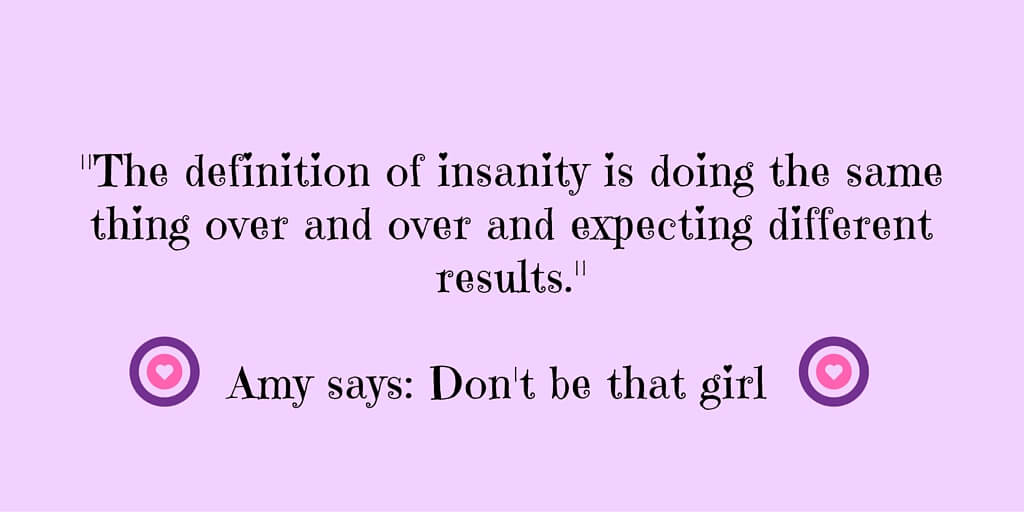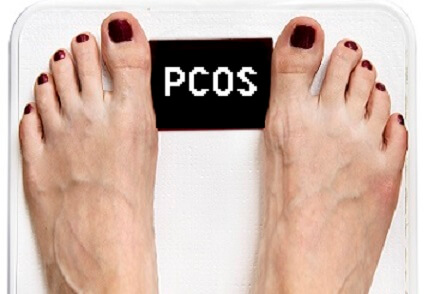
by AmyPlano | Jul 19, 2016 | PCOS and carbohydrates, PCOS and metabolism, PCOS and Weight Gain, Truth Bomb, Weight Loss
Given the fact I have been successfully helping women with PCOS lose weight for the last decade, it is fair to say I have seen my fair share of diets. However, one thing I can tell is certain Weight Watchers and PCOS don’t mix!

Typically by the time most women find me, they have been struggling for quite some time with their weight. They have tried every diet out there with minimal success. I don’t think there has been one woman who has exited their initial visit with me not having an “ah-ha!” moment. When women leave my office, it’s often with a sigh of relief — like a load has been lifted off their shoulders. What they have been doing for so long has been so wrong — but they have been brainwashed to think that it is SO right. That folks is the true definition of frustration! No bueno!
PCOS and Weight Watchers: Why Weight Watchers is making you fat!
You see, most women with PCOS are SO confused when it comes to diet. And rightfully so! There is so much information out there — low fat, high fat, no gluten, no dairy, no salt, no carbohydrates. I’ve seen every diet out there. But if I were to say there is any one diet I see many PCOSers follow (or followed at some point in their weight loss journey!) is Weight Watchers. If there is anyone diet platform that is just so damn wrong for women with PCOS it is Weight Watchers. Yes, you heard me correcty! If you have PCOS, Weight Watchers is making you fat! Stop the presses — if you are following a Weight Watchers style diet – get the heck off of it now. Weight Watchers and PCOS do not play in the sand box nicely!
Let me tell you why.
Why Weight Watchers doesn’t work for women with PCOS
You see, Weight Watchers is a very high carbohydrate, moderate protein, low fat diet. Most of the programs created by Weight Watchers provide at least 60 % of the total daily calories from carbohydrates. For Pete’s sake — I don’t even feed my professional athletes that many carbohydrates! Most women with PCOS effectively lose weight when their diet is just around 30 – 40 % total calories coming from carbohydrates. For someone following a 1300 calorie diet, 40 % of your calories coming from carbohydrates would be < 140 grams per day. If you were following the same level calories (I know you don’t count calories on Weight Watchers – you count points – but bare with me sister’!) on a Weight Watchers plan would you would be taking in about 200 grams per day. As small as it sounds — these 60 grams of extra carbohydrates ARE NOT working for your waist line – not to mention how it is impacting your fertility and overall health.
Every time we consume carbohydrates of any kind (it doesn’t matter if it is fruit, oatmeal or a sweet potato!) our bodies break down the carbohydrates into glucose. In response to glucose your angry body dumps out the hormone insulin. Insulin is what we consider a storage hormone. This means when insulin is circulating in our blood system – our bodies do not break down body fat for fuel – but instead it goes into fat storage mode.

As many as 70 % of women with PCOS are insulin resistant. This means their bodies’ are resistant to the effects of insulin. Insulin resistance makes it very difficult for their bodies to process carbohydrates. That is why many women with PCOS take the medication Metformin. This miracle drug for women with PCOS makes their cells more sensitive to the effects of insulin. Therefore, Metformin allows them to break down carbohydrates more effectively. I say more effectively because even on a therapeutic dose of Metformin, say around 1500 mg/day, women with PCOS still tend to not thrive on a diet higher than 40 % total calories coming from carbohydrates. I think of PCOS like having a carbohydrate handicap – that even when medicated on Metformin — this handicap does not go away 🙁

Stop the carbohydrate madness – just say heck ‘no’ to Weight Watchers and PCOS
Weight Watchers is the wrong weight loss program for women with PCOS
So back to Weight Watchers and why it could be responsible for making you fat if you have PCOS. On a typical Weight Watchers program you are eating carbohydrates all day. Breakfast — Special K Cereal (Carb) with Skim Milk (Carb) and fruit (Carb) Lunch – Turkey Sandwich (Carb) with pretzels (Carbs) and a yogurt (Carb) Dinner — Chicken, Sweet Potato (Carb) and broccoli. Snacks – Flavored Greek Yogurt (Carb), Apple (Carb), Skinny Cow (Carb). As you can see there is no shortage of carbohydrates. You mine as well be fueling for a marathon!
I want to make it clear – I have nothing against any of these foods. But for women with PCOS this style of eating creates an insulin disaster! All day long your body is getting flooded with carbohydrates that drives your insulin through the roof. Therefore, on a program like Weight Watchers you become a fat-storing machine – completely the opposite of what you want!
I think Weight Watchers is fantastic for many things – one being accountability. Also for many people it clearly works – and I cannot deny that! But I lie to you not – Weight Watchers is NOT the appropriate program for someone with PCOS trying to lose weight. I work with MANY women who actually gain weight while on a Weight Watchers program. If this is you — do not blame yourself. I bet you are spot-on with your points — it is just not the right program for you.
The right weight loss diet for women with PCOS
Women with PCOS need to follow a modest, lower carbohydrate diet to promote and sustain weight loss. That isn’t the same thing as a no-carbohydrate diet or a low-carbohydrate diet (< 20 grams per day). No need to be so drastic. So please don’t get these terms confused. Most women do well when their carbohydrates are between 90 – 140 grams per day.
In future blog posts, I’ll discuss what a typical day looks like at these carbohydrate levels. But in the meantime if you are hanging with the ladies at Weight Watchers and you have PCOS, please promise me you will cut your ties?
I’m only saying this for your own good – I promise.
Got questions on why Weight Watchers could be making you fat if you struggle with PCOS? Please post them in the comments below. I would love to hear your thoughts.



by AmyPlano | Jan 1, 2014 | Truth Bomb
Why am I so tired? Fatigue and PCOS
Do you feel tired all the time? Lots of people do. It’s a sign of our overbooked times.
But fatigue is also one of the leading symptoms reported among women with PCOS.
Getting your energy back could be simpler than you think. Start by seeing if you can relate to the top 3 causes of fatigue.
The top 3 reasons for fatigue
For PCOS and non-PCOS women alike, the most common reasons for feeling tired are about daily habits.
1. What you eat. Reaching for caffeine and sugar can backfire, leaving you more fatigued as your blood sugar levels fluctuate wildly. Instead, go for a balanced, healthy diet replete with fruits, vegetables, and lean protein. “Most people feel like they’re less tired if they eat a healthy diet,” says J. Fred Ralston Jr., MD, past president of the American College of Physicians. “Eating healthy also means you’ll carry less weight, and obesity is a big contributor to fatigue.
2. How much you sleep. You saw this one coming, right? Many people don’t get enough sleep. If you’re one of them, avoid caffeine and alcohol in the hours just before bedtime, turn off the TV before bed, and keep your bedroom quiet and restful.
3. How much you exercise. This is the biggie, Ralston says. His favorite prescription for plain old tiredness is regular, vigorous exercise. Finish at least three hours before bedtime, so you have time to wind down.
If you think that exercise would just make you more tired, there’s good news: Exercise breeds energy. Almost all the studies that have looked at this question have found the same thing: Sedentary people who start exercising feel much less fatigue than those who stay idle. It’s one of those surprising truths: move more and you’ll get more energy.
Ralston recommends getting 40 minutes of exercise at least four days a week, to get you going.
Do that, and a month from now, you should notice some improvement. Keep with it for 3 to 6 months more, and you should feel much better.
If you follow your exercise prescription for at least a month — and you’re also making enough time for sleep — and you’re still feeling lousy, look into other causes, Ralston advises.
The future is now: Fight fatigue today
Self care is important for everyone, but especially for women with PCOS. In order to fight fatigue, begin by addressing the causes listed above: modify your diet and nutrition intake, get enough sleep, and implement a regular exercise plan.
When you tackle these steps, you’ll notice a difference almost immediately. With or without PCOS, you’ll feel happier and healthier…and fatigue will be a thing of the past, once and for all.

by AmyPlano | Dec 27, 2013 | Truth Bomb
Can fertility supplements help women with PCOS?
[vc_row][vc_column width=”1/1″][vc_column_text]While no pill or drink can replace a healthy diet and lifestyle, emerging research has shown that taking certain dietary supplements can improve your fertility.
Here’s our list of the Top 4 dietary supplements women with PCOS should consider taking to improve their fertility.
The 4 best fertility supplements for women with PCOS
Vitamin D
Recognized as a vitamin and a hormone, Vitamin D receptors have now been identified in almost every tissue and cell in the human body. This Vitamin has also been found to be involved in follicle egg maturation and development.
In a small trial study of 13 women with PCOS who were deficient in Vitamin D, normal menstrual cycles resumed within 2 months in 7 of the 9 women who had irregular menstrual cycles when given Vitamin D repletion with calcium therapy (1). Two women even established pregnancies. The authors of the study suggest that abnormalities in calcium balance may be responsible, in part, for the arrested follicular development in women with PCOS and may even contribute to the pathogenesis of the syndrome (1,2).
Low Vitamin D levels were found to be associated with lower rates of follicle development and pregnancy after stimulation with clomid in women with PCOS (3).
Fish Oil
Omega-3 fats, specifically long-chain eicosapentaenoic acid (EPA) and docosahexaenoic acid (DHA) found in cold-water fish may help with fertility in women with PCOS. One study showed androgen concentrations in young women with PCOS were significantly reduced after supplementation of long-chain omega-3 fats (4).
Women with PCOS who were not obese were given 1,500 mg of omega-3 fats daily for six months. BMI plus insulin levels decreased significantly during treatment. Additionally, serum LH and testosterone levels decreased, and SHBG levels increased significantly (5).
Unless you eat cold-water fish (like tuna, trout, salmon) at least twice a week, you may want to consider supplementing your diet with fish oil.
Inositol
Inositol, specifically myo and d-chiro-inositol are perhaps the most researched nutritional supplement for PCOS. A relatives of the B complex vitamins, insositol has shown favorable results in improving nearly all aspects of PCOS, including insulin sensitivity, reproduction (restores ovulation and improves oocyte quality), hormonal imbalance, (improves androgens) and metabolic issues (inflammation, dyslipidemia, hypertension, and weight loss). There is also evidence that taking MYO in pregnancy can reduce the rates of gestational diabetes (6).
In regards to fertility, MYO improved oocyte quality better than d-chiro inositol (DCI). MYO has also been demonstrated to restore ovulation. Twenty-two of 25 women with PCOS had restored menstrual cycle with six months of MYO treatment; 72% of them maintained normal ovulation, and 40% became pregnant (7).
One study compared ovulation rates in women treated with MYO versus metformin. Sixty women received 1,500 mg/day of metformin, while 60 women received 4 g/day of MYO plus 400 mcg of folic acid. Ovulation was restored in 65% of women treated with MYO vs. 50% in the metformin group. More pregnancies occurred in the MYO group vs. metformin (18% vs. 11%) (8).[/vc_column_text][/vc_column][/vc_row]

by AmyPlano | Dec 20, 2013 | PCOS and Gestational Diabetes, Truth Bomb, Weight Loss
Who has an increased risk for PCOS?
The main risk factor for polycystic ovary syndrome (PCOS) is genetics. A woman’s risk for PCOS is higher if she’s genetically predisposed to it: that means other women in her family have PCOS, have irregular periods or have diabetes. PCOS can be passed down from either your mother’s or father’s side.
A family history of diabetes may increase your risk for PCOS because of the strong relationship between diabetes and PCOS.
Long-term use of the seizure medicine valproate (such as Depakote) has been linked to an increased risk of PCOS.

by AmyPlano | Dec 18, 2013 | Truth Bomb
How can I cope with the emotional effects of PCOS?
Having PCOS can be difficult. You may feel:
Embarrassed by your appearance
Worried about being able to get pregnant
Depressed
How can I cope with the emotional effects of PCOS?
It’s crucial to remember that you are not alone. There are countless resources available for women with PCOS.
Getting treatment can help you cope with the emotional effects of PCOS, as well as help you address other concerns and boost your self-esteem.
You may also want to look for support groups in your area or online to help you deal with the emotional effects of PCOS.

by AmyPlano | Dec 14, 2013 | PCOS and Gestational Diabetes, Truth Bomb, Weight Loss
What is polycystic ovary syndrome (PCOS)?
Polycystic ovary syndrome (PCOS) is a common ovulation problem that affects about 5% to 10% of women in their reproductive years.
PCOS is a hormonal imbalance that can make the ovaries stop working normally.
In most cases, the ovaries become enlarged and appear covered with tiny, fluid-filled cysts.
What are the symptoms of polycystic ovary syndrome (PCOS)?
- No periods, irregular periods, or irregular bleeding.
- No ovulation or irregular ovulation.
- Obesity or weight gain (although thin women may have PCOS).
- Insulin resistance (an indicator of diabetes).
- High blood pressure.
- Abnormal cholesterol with high trigylcerides.
- Excess hair growth on the body and face (hirsutism).
- Acne or oily skin.
- Thinning hair or male-pattern baldness.
How can I cope with PCOS?
PCOS can be emotionally trying for women. Those who suffer from PCOS often report feelings of depression, pregnancy concerns, and feeling self-conscious about their appearance.
If you have PCOS, it’s important to remember that you’re not alone — therefore, you shouldn’t go through this emotional journey by yourself.
There are countless resources for women to help them cope with the emotional effects of PCOS. Reaching out for help is truly taking the first step in winning the physical and emotional battles of polycystic ovary syndrome.
If you’re feeling alone in your PCOS journey, please contact me today. For over a decade, I’ve been working with top doctors in women’s health and fertility to design the most comprehensive and effective nutrition programs for women with PCOS.
We’ll make PCOS a minor bump in the road, and get you back to the healthiest version of you.











